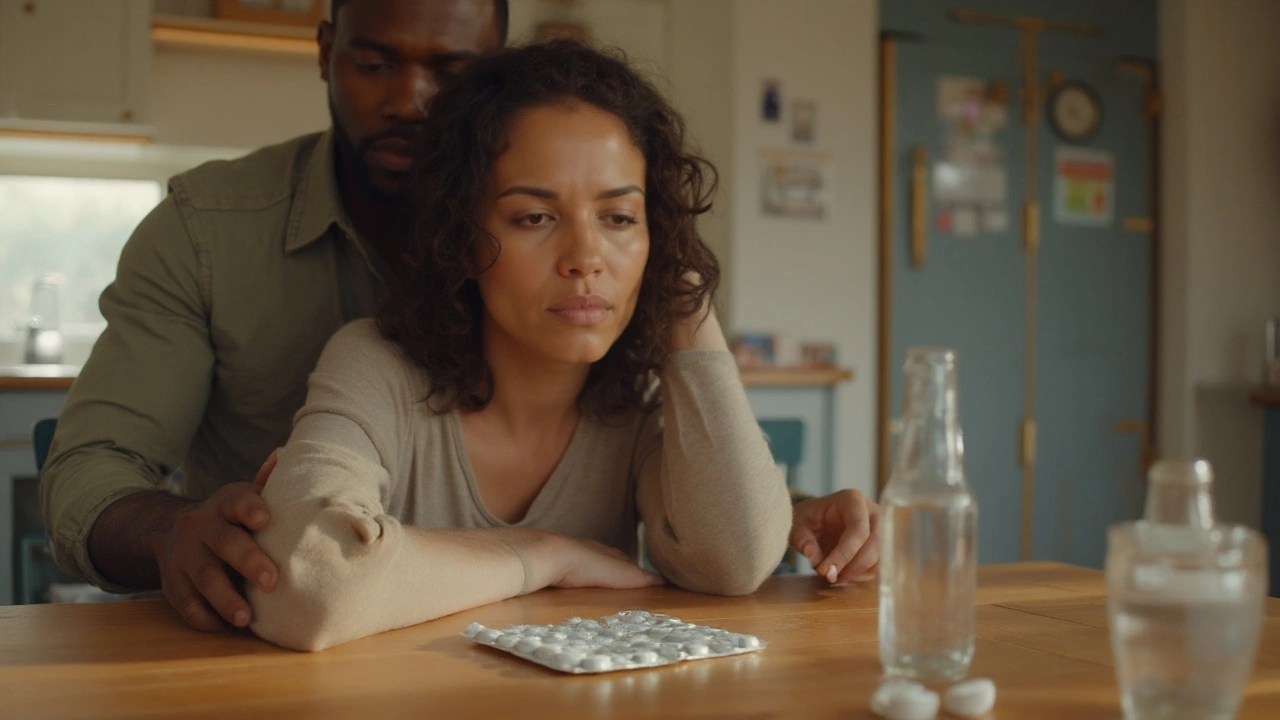Poison Control: What to Do When Accidents Happen
If a child swallows a cleaning product or an adult mixes the wrong meds, panic can hit fast. The good news is that you don’t have to guess what comes next – there are clear steps that can stop a bad situation from getting worse.
When to Call Poison Control
The first rule is simple: call as soon as you suspect poisoning. Most countries have a 24‑hour poison helpline (in Canada, dial 1‑800‑268‑9017). Have these details ready:
- Age and weight of the person affected
- What was taken – product name, amount, how it was taken (swallowed, inhaled, skin contact)
- Time of exposure
- Any symptoms you see right now
The operator will ask exactly these questions. Giving precise info lets them give the safest advice fast.
First‑Aid Steps You Can Take at Home
While waiting on the phone, follow any directions the poison center gives you. Common actions include:
- Don’t induce vomiting unless a professional tells you to – it can cause more damage.
- Rinse eyes or skin with plenty of water for at least 15 minutes if the substance is on the outside.
- If it’s a medication bottle, bring it to the phone. Knowing the exact drug helps the specialist decide the next move.
- Give activated charcoal only when instructed – it can bind some poisons but not all.
Stay with the person, keep them calm, and monitor for changes like breathing difficulty, seizures, or loss of consciousness. If any severe symptom appears, treat it as an emergency and call 911 right away.
Most poison cases involve household items – cleaners, pesticides, or over‑the‑counter meds. Keeping these products locked away and out of reach cuts the risk dramatically. Also, store them in original containers with labels; a mislabeled bottle can lead to accidental ingestion.
If you work in a job that uses chemicals, ask your employer for a copy of the Safety Data Sheet (SDS). Knowing the right antidote or first‑aid measure ahead of time saves precious minutes.
Remember, poison control lines are there to help everyday people. They’re staffed by nurses and pharmacists who can guide you through the exact steps you need – no matter how small or big the incident seems.
Bottom line: call fast, give clear details, follow the advice, and keep emergency numbers handy. With these habits, you turn a scary moment into a controlled response.

Cinnarizine Overdose: Signs, Symptoms, First Aid, and Treatment Guide
Spot the signs of cinnarizine overdose, act fast with first aid, know when to call poison control, and learn what hospital care looks like-clear, practical, 2025-ready.
Read More